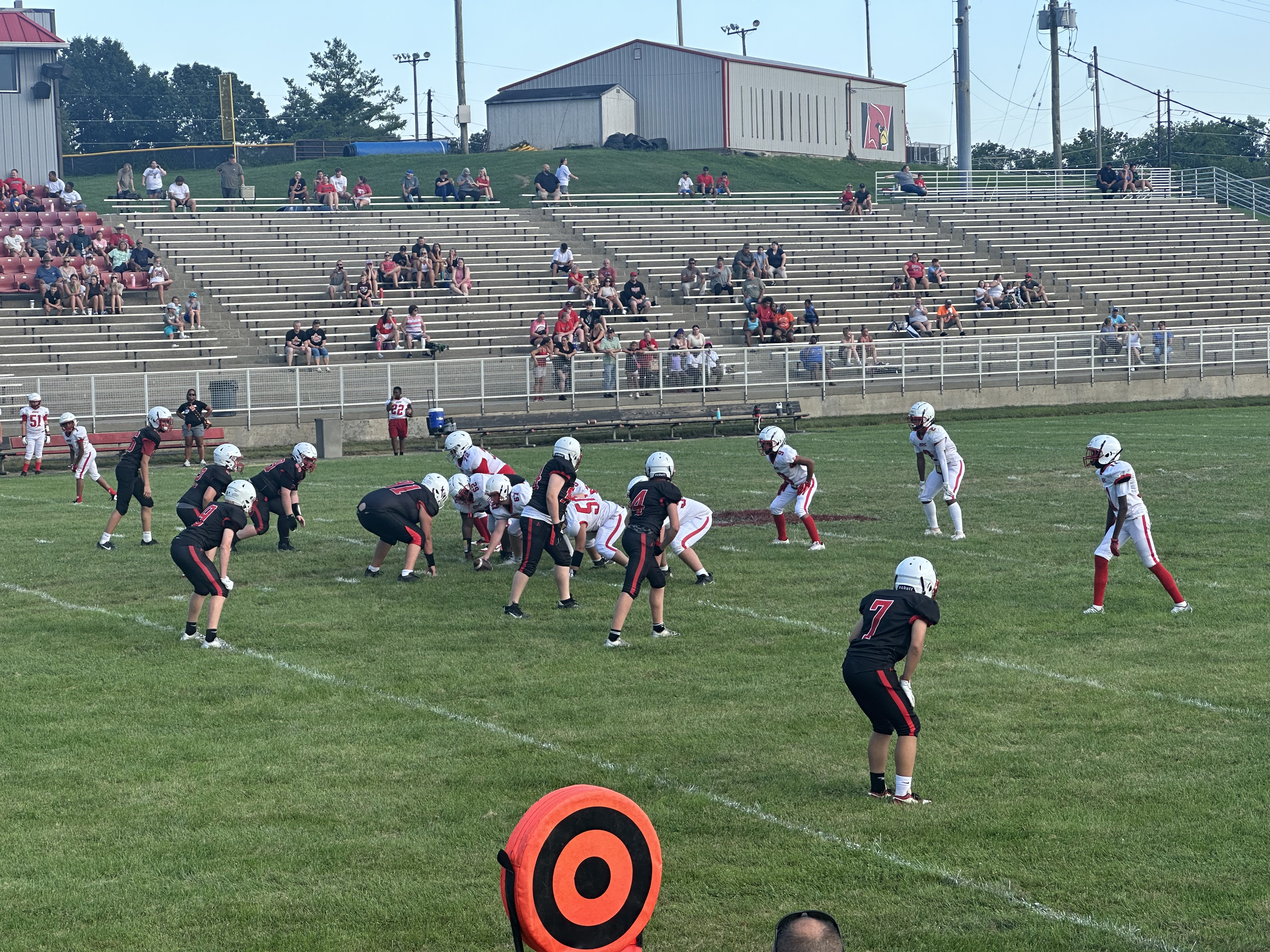County spelling bee winner to compete at state
Published 9:57 am Friday, March 15, 2019

- Marissa Gilchrist, 13, heads to the Ford Motor Company Spelling Bee Saturday. She won the county spelling bee for the third time in January. (Photo by Lashana Harney)
At school, Marissa Gilchrist is known as a walking, talking dictionary.
Gilchrist, an eighth-grader at St. Agatha Academy, said if a teacher, friend or whoever doesn’t know how to spell a word, they will ask her first.
“I can just rattle it off,” she said.
Trending
Gilchrist’s love for words led her to become the three-time county spelling bee champion.
On Saturday, she will compete at the Ford Motor Company Spelling Bee in Louisville. The top five spellers receive savings bonds from the Kentucky Derby Festival Foundation, while the overall champion gets to ride on the winner’s float in the Republic Bank Pegasus Parade.
Gilchrist said she knows what to expect, so she’s not as nervous as she has been in previous years, but she’s still diligent in her practice. The state competition is more advanced than the county spelling bee, and she has more, tougher competition. She will be up against more than 100 other competitors.
Gilchrist said she started prepping for this competition in the summer, long before she won the county competition for the third time.
“As I learned last year, doing only like solid, difficult practice only for the month and a half between county and state is not enough,” Gilchrist said.
Gilchrist said she also encourages interested spelling bee competitors not to give up and to keep at it. Practice leads to improvement, she said.
Trending
Gilchrist successfully defended her champion title in January at the Clark County Spelling Bee.
As an eighth-grader at St. Agatha Academy, it was Gilchrist’s last year to participate in the spelling bee. The spelling bee lasted about six rounds and ended when Gilchrist spelled “hyperbole” correctly while her opponent missed the following word.
Winchester Mayor Ed Burtner also presented Gilchrist, 13, with a key to the city in February.
Gilchrist said words have always interested her. In the fifth grade, her teacher would allow her to organize the books in the classroom library; Gilchrist would usually arrange them alphabetically.
Gilchrist said she’s especially interested in word origin and learning the roots of a language. She is currently learning German and Portuguese in her spare time via an app on her phone.
Gilchrist said many people are unaware of how the words in the English language originated from other languages. It also helps to know the origin of a word because some English rules don’t apply in other languages such as the “i before e” rule, which Gilchrist said isn’t applicable in German. She also keeps in mind homophones, homonyms and homographs.
“It can help you on stage to know which is which,” Gilchrist said.
Last year, while studying Greek history, she learned many English words also come from the Greek lexicon. Languages often give and take from one another, and it’s all fascinating, Gilchrist said.
Over the years, Gilchrist said her preparation for the bees focuses heavily on knowing prefixes, suffixes and the rules of words in other languages. When at the mic, ready to spell, Gilchrist said she always asks to hear the word used in a sentence and often asks for the language of origin — all tactics to win.
Gilchrist said she also studies the spelling bee guidebooks thoroughly.
“I could probably do that book now, backward and forwards,” she said.
In the sixth grade, Gilchrist said she started using the dictionary as a tool to practice, flipping through the pages, learning word after word.
She also has a general rule when it comes to memorization: say it once, write it down once, say it two times out loud, two times in your head and then write it down again.
“You will never forget anything that way,” Gilchrist said.
The intense focus on words has helped Gilchrist in other areas of her life. It has helped her become a better reader; she can now read at a college-level. It’s also helped her understand vocabulary and concepts in science, which is another one of her favorite subjects.
Gilchrist said she is thankful to have such a supportive family. Her dad will often challenge her to spell new, challenging words.
Gilchrist even has a few favorite words such as haecceitas, which originates from Medieval Latin roots. She also likes the word monocotyledon because of how it sounds; it is the name of a flowering plant with an embryo that bears a single cotyledon or seed leaf.
“It just sounds fun,” she said.
Even with autocorrect and other technology that people use to correct their spelling or grammar, Gilchrist said she believes spelling bees are important. She said because of bees she’s learned to look at words a little bit deeper: understanding their meanings, their structure, origins, how, why and when people use them.
Plus, Gilchrist said it’s even better when you can sound smart and know what you’re saying.







